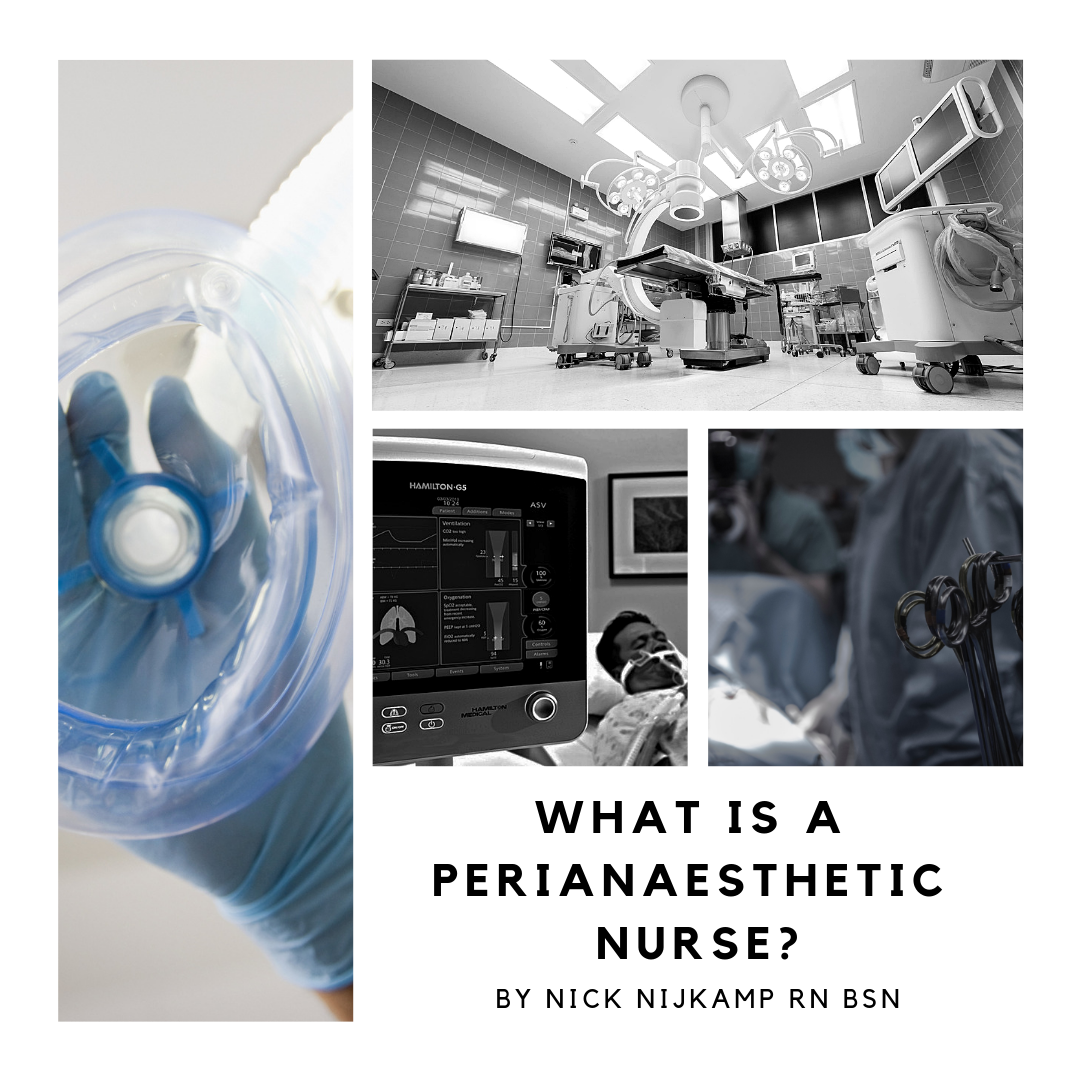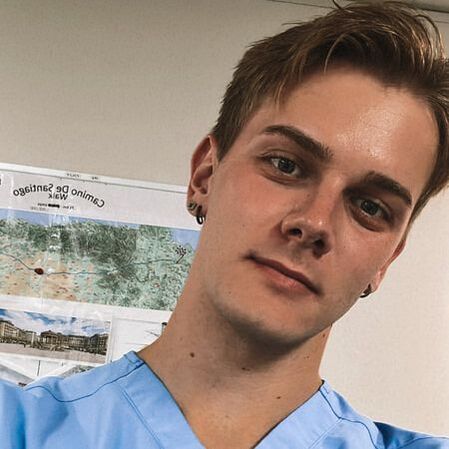What is a perianaesthesia nurse?
There are many definitions of a perianaestheic nurse - depending on where you look. My favourite definition of my role comes from the Australia College of Perioperative Nurses (ACORN). The perianaesthetic nurse is an integral part of the theatre team. We provide direct patient care prior to, during and after a procedure. We are patient advocates when patients are at their most vulnerable and cannot look after themselves. We are with patients every step of the way, comforting them and caring for them during a scary period in their life. Our central focus is to look after our patients holistically, and to ensure patient safety, and high quality care. The job is two-fold, and in Australia is governed by two different Colleges. Firstly, we are a nurse, and are governed by the Standards of Perioperative Nursing by the Australian College of Nursing. Secondly, we are the assistant to the anaesthetist, and are governed by PS08 Statement on the Assistant to the Anaesthetist by the Australian and New Zealand College of Anaesthetists. What do you do? Before a patients operation we go and meet our patients, this is our time to comfort them and understand their needs. During this initial meeting we should also conduct a quick ABCDE assessment, and check our patients vital signs, blood test results, and medical imaging results. We also run through a 'pre-operative checklist' (which is different for every facility). But the important parts that we focus on is: patient identification, correct operation (and that the patient understands the procedure), allergies, regular medication, medical and surgical history, fasting status, implants/prosthesis/piercings, skin integrity, pregnancy and any other alerts. During the procedure we assist with the general cares of the patient. This begins with conducting a team time out, to ensure that everyone is on the same page. We assist with intubation and ventilation of the patient. Personally, I'm a bit anal about the positioning of my patients, so we assist with the positioning. Throughout the operation we continuously monitor our patients. We document our care plan. I also like to go through the patients chart and ensure that the medication charts, fluid charts, etc are up to date and correct. One of the most important jobs while a patient is having their operation, is to plan for when they wake up. Do they need pain relief charted? What about antiemetics or antibiotics? What other services might this patient need? After a patients procedure, we take them to the Post-Anaesthetic Care Unit (PACU) and hand over to the PACU nurse. I don't often work in PACU as I find myself more valuable looking after patients before and during their procedure, not after. How do you look after patients? The operating theatres is a scary and daunting place for patients. It is a high risk environment where accidents can lay in a small corner. It is thanks to the vigilant nurses, surgeons, anaesthetists and other staff in theatre that we can all safety look after our patients, and make their surgical experience a good one. No one works by themselves in an operating theatre, and we all part of a valuable team. What knowledge is important for the job? Well, this could turn into a really longgggg section. So I'll keep it brief. Firstly, we all have basic nursing knowledge. Whether we come straight out of university and go straight to anaesthesia, or whether we've worked in other areas first. We all know the basics, and we can still go and work in other areas. I may be young, but I've worked in quite a few different areas, and they all interlink. We have a general knowledge of the perioperative environment. Including surgical specialities, operations, instruments, etc. Lastly, perianaesthetic nurses have a good knowledge of critical care and intensive care. We need to know about ventilation, invasive monitoring, and sedation. This allows us to work perfectly between anaesthesia and ICU. Why do you do it? I love my job. Why? I find perianaesthesia to be the best area for me to be able to advocate for my patients. I find joy in comforting patients before their operation and making them a little less stressed. I enjoy looking after them during their procedure, and I love seeing their smiles when they're awake in PACU. If you liked this post remember to like, share, and comment!
0 Comments
Leave a Reply. |
|



